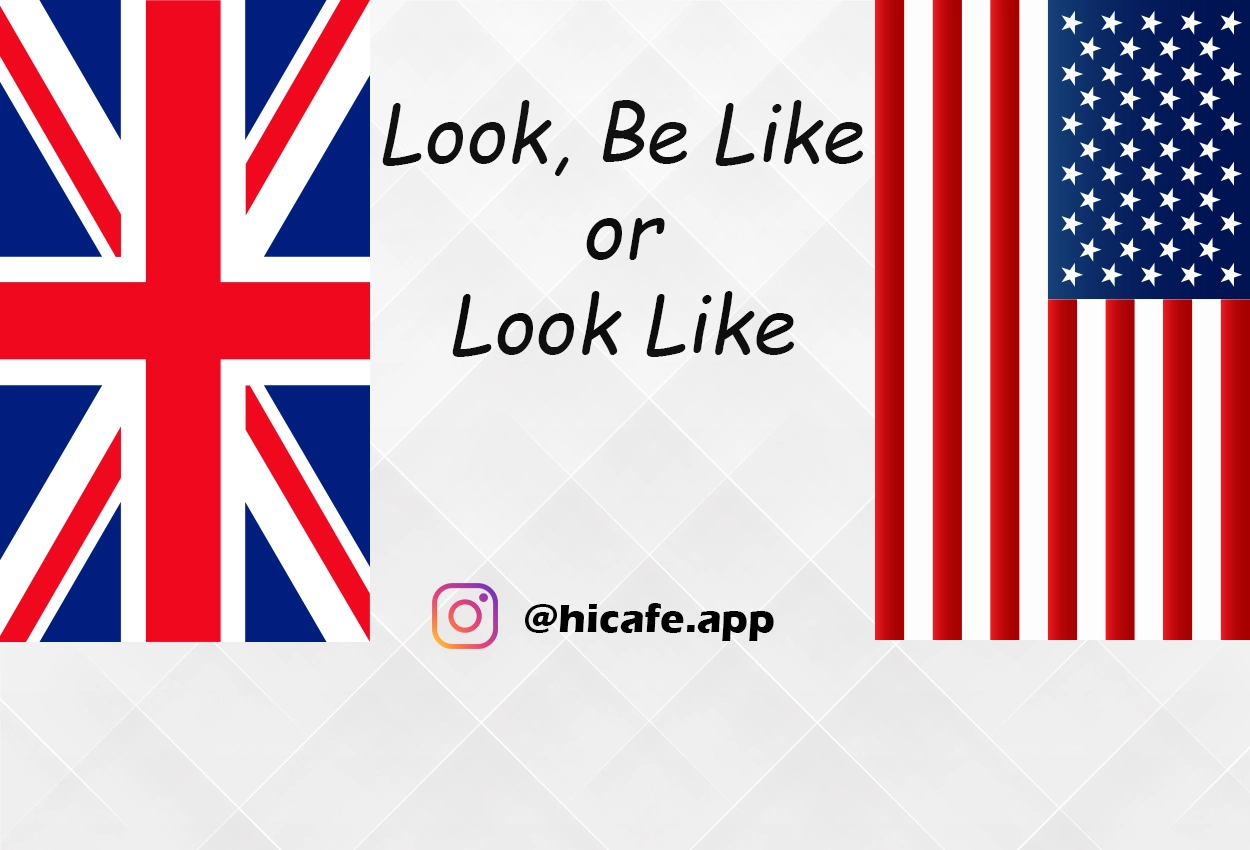
When describing people, their emotions, or similarities, we often use the phrases “look,” “be like,” and “look like.” Each of these expressions is used in specific contexts and has different meanings. By understanding how to use these phrases correctly, we will know the looks and looks like difference.
Previous Conversation Tip Lesson
English Conversation For tourist
Be Like vs. Look Like
Click here to practice this conversation tip in Instagram.
Look
Follow the verb “look” with an adjective to describe someone’s emotion or state:
- He looks sad.
- They look nervous.
- You look energetic.
Remember to use do / does; don’t and doesn’t for negatives and questions.
- You don’t look so good. What’s the matter?
- Does she look angry, in your point of you?
You can also use “look” in the present continuous tense to talk about someone’s health:
- You’re looking good! (= You’re in good shape!)
- She’s looking sick. (= she appears sick.)
Click here to practice this conversation tip in Instagram.
Be like
We use “be like” to talk about similarities, both physical and in character.
Remember to change “be” to the correct form of the verb:
- I’m like my uncle.
- Sana is like her sister.
- He’s like his older brother.
- Who are you like?
- Your brother and you aren’t like anyone else in your family.
You can also vary “be like” with other describing words:
- She’s a lot like … (her brother)
- She’s really like … (her brother)
- She’s very like … (her brother)
- She’s just like … (her brother)
- She’s a bit like … (her brother)
- She’s quite like … (her brother)
Remember to use the verb “to be” as the auxiliary for questions and negatives:
- You aren’t like your father at all!
- Is she like her aunt?
We can also use “be like” to ask for a description of places and things.
- I dropped into the new Chinese restaurant last night.
- What’s it like? (= What is it like?)
- It’s wonderful!
- I watched the new Tom Hanks film yesterday morning.
- What was it like?
- Awesome! He’s fantastic in it.
Look like
Use “look like” to talk about a person’s physical similarity with another person.
- I look like my grandmother.
- You look like your older brother.
- She looks like her aunt.
Remember, with the verb “look” in the present simple tense, you need do / does; don’t / doesn’t to make questions and negatives.
- Do you look like your grandmother or your grandfather?
- Does she look like her mother?
- They don’t look like their grandparents.
Click here to practice this conversation tip in Instagram.
Asking questions
Be careful with these questions
What is she like? = asks about personality
- What is she like?
- She’s very outgoing and has a great sense of humor.
Who is she like? = asks about physical similarity or similar character to another person
- Who is he like?
- She’s quite like her aunt, especially when it comes to her artistic talents.
- She’s like her father. They’re both quite ambitious.
What does she look like? = asks for a physical description
- What does she look like?
- She’s short and skinny.
Who does she look like? = asks about physical similarity with another person
- Who does she look like?
- In my view, she looks like her older sister.
Conversation 1:
I’ve got a new colleague.
What’s she like?
She’s alright.
Conversation 2:
I just met Sarah’s new roommate.
What does she look like?
Tall, pretty – seems like a good match for her!
Conversation 3:
I watched the latest Marvel movie yesterday.
What was it like?
It was pretty good.
Conclusion
By following the guidelines provided for each expression, you can provide descriptions of individuals in various contexts. Practice using these phrases in conversations to enhance your language skills and convey information accurately.
Next Conversation Tip Lesson
Talking About Health Problems in English
Related Conversation Lessons
None
Practice Conversation with HiCafe App
By using HiCafe App, you can join free discussion events and Practice English Conversation online or in-person and improve your verbal skills.
All Conversation Lessons
To see and read all of our conversation lessons, you can visit our Improve English Speaking Skills page.


